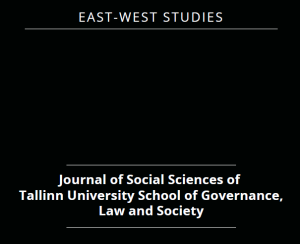The development of mental health strategy in Armenia: A review of the activities of the Armenian mental health policy working group
17:00, February 1, 2017 | News, Other news Following the independence of the Republic of Armenia in 1991, due to socioeconomic hardships, the number of people in need of medical psychiatric and social services significantly increased. “As a result of a disastrous earthquake, military conflicts, poverty, political clashes, and the flooding in of refugees, producing many lonely and homeless people, there has been an increased number of persons in Armenia who need the medical psychiatric and social services in the last ten years”. This was the main reason for a rising level of recorded stress reactions. However, as a post-Soviet state, the Republic of Armenia inherited a health system organised according to the Semashko model with guaranteed free medical assistance and access to a comprehensive range of medical care for the entire population.
Following the independence of the Republic of Armenia in 1991, due to socioeconomic hardships, the number of people in need of medical psychiatric and social services significantly increased. “As a result of a disastrous earthquake, military conflicts, poverty, political clashes, and the flooding in of refugees, producing many lonely and homeless people, there has been an increased number of persons in Armenia who need the medical psychiatric and social services in the last ten years”. This was the main reason for a rising level of recorded stress reactions. However, as a post-Soviet state, the Republic of Armenia inherited a health system organised according to the Semashko model with guaranteed free medical assistance and access to a comprehensive range of medical care for the entire population.
In December of 1991, the UN General Assembly adopted the Resolution A/RES/46/119, endorsing “The principles for the protection of persons with mental illness and the improvement of mental health care”, which was a significant step towards internationalization of mental health disability rights.
Since then, the provision of mental health services in Armenia has not undergone significant reforms. As the system of psychiatric provision in the RA has inherited the Soviet system, mental health services are still exclusively provided in specialised psychiatric institutions, including hospitals and social care homes, but lack appropriately trained mental health providers. According to civil society monitoring reports, people with psychosocial disabilities in specialised mental health institutions still face enormous problems, such as poor resource supplies, stereotyped approaches to patient management, cases of ill-treatment, discrimination, social exclusion, and human rights abuses. Stigmatisation of patients with mental health problems remains a challenge for both families and society as a whole.
Despite the existing problems of the past decade, remarkable changes towards the reformation of the mental health system of the RA have been recorded. The year 2013 marked the first time that the government made a strong commitment to introducing community-based services on a policy level.
The overall new approaches are dramatically changing the perception towards the mental health field in the RA and thus allow the shift in policies and practices from purely psychiatric medical approaches to a human rights based model where the human rights of people with mental disabilities are given the highest priority.
The speedy adoption of two national policy papers in 2013 and 2014, the Mental Health Strategy and Concept, was a breakthrough in the whole reform, creating the opportunity for the country to institutionalise a community-based service model.
While there is a lack of financing, credible analytical data regarding the needs of countrymen, and a lack of professionals trained in the field,6 now more than ever, crucial steps must be taken to assess the needs, adjust policies related to different aspects of the system, organise a plethora of trained professionals, and test the community-based service model for further scaling up nationwide.
The development of the legal sector is very important in regards to the promotion of equal rights for people with disabilities and their participation and integration within their community.
See the full article here
